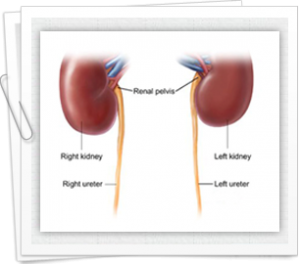Online CPR Certification Blog
What happens when the kidney loses its functions?
Date: July 22nd, 2014
 Kidney failure is simple terms means that your kidney has lost its ability to perform its functions in normal spectrum. Of worth noting is that it occurs in two stages namely: chronic and acute; where the former occurs in the long term and the latter is almost sudden. With acute kidney failure, your body can stop working therefore creating an imbalance in the water and other mineral levels in the body.
Kidney failure is simple terms means that your kidney has lost its ability to perform its functions in normal spectrum. Of worth noting is that it occurs in two stages namely: chronic and acute; where the former occurs in the long term and the latter is almost sudden. With acute kidney failure, your body can stop working therefore creating an imbalance in the water and other mineral levels in the body.
Main causes
Acute kidney injury can occur in the different ways as follows:
- A sudden serious drop in the blood flow to the kidney or a shortage of it-heavy blood loss or an infection commonly known as sepsis can reduce blood levels in the kidney leading to dehydration.
- Damage caused by medicines, poisons or other infections- antibiotics such as gentamicin and streptomycin can send shock waves to the kidney more so for people with long term illnesses.
- Blockage in the urine-a tumor, injury or enlarged prostate gland can be the main cause of this.
Basically, this condition is more likely to affect older folks, individuals with long term ailments or people in intensive care unit.
The symptoms
They include: slight or no urine, swelling of the legs and feet, lack of appetite, nausea and vomiting, confusion and anxiety, back pains among many others.
This is usually done while undergoing an analysis for another ailment or blood and urine tests to check for irregular imbalances.
Chronic kidney failure on the other hand is characterized by a long term loss of kidney function. It two main causes are: diabetes and high blood pressure; constitute two thirds of the cases. The former is increased sugar levels in the body which ultimately causes damage to body organs such as the kidney while the latter happens when the blood pressure is too high for the walls to handle. Its symptoms resemble those of the acute, with loss of energy and feeling tired being the main while others are: sleeplessness, muscle cramps, especially at night, puffiness of the eyes in the morning and increased urination at night. People with diabetes, high blood pressure or have a family history of kidney failures are more likely to experience the condition.
Learning about the risk is one thing but also knowing how to prevent, mitigate or manage them potentially becomes another vital aspect in the quest to curb these kidney failure maladies.
By going for a simple blood test you can be able to check your glomerular filtration rate (GFR) while a urine test can check for protein. The former will show how much blood your kidney filter potentially every minute and explain their functionality. A GFR of 60 or higher is, in fact, the normal range. Anything below that means you have a kidney related ailment. The latter test checks for protein in the urine; this can avoid kidney damage, which is a cause by protein leaks in the urine.
Kidney related diseases are normally very complicated and for this reason, it is important to constantly monitor and take note of any irregular changes with the kidneys at an early stage. For people with diabetes and high blood pressure, a good diet and exercise can help ease up that stress, at least for starters. This will ultimately avoid the chances of a kidney failure which can cause death.